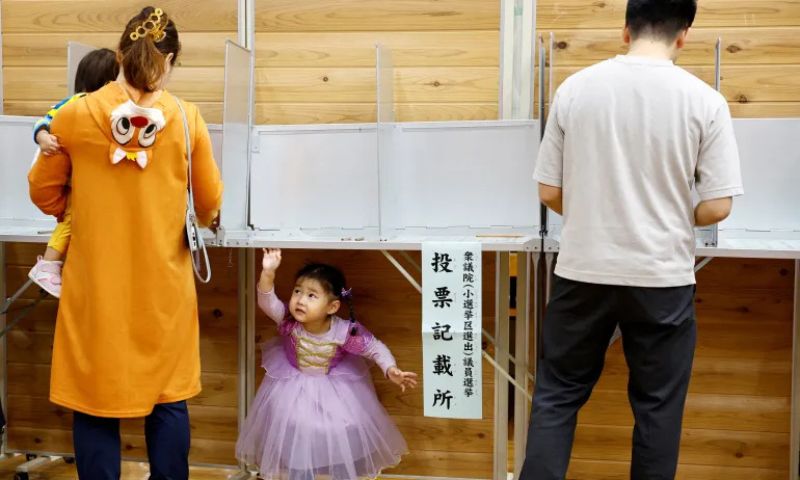TOKYO: Japan’s ruling Liberal Democratic Party (LDP) fell short of securing a majority in snap parliamentary elections held on Sunday, national broadcaster NHK projected. This marks the first time since 2009 that the LDP has failed to achieve a majority, delivering a significant setback to newly appointed Prime Minister Shigeru Ishiba.
The outcome raises questions about whether the LDP and its long-term coalition partner, Komeito, can secure a collective majority in the 465-seat House of Representatives. NHK projected that the LDP would win between 153 and 219 seats, falling short of the 233 seats required for an outright majority.
Together with Komeito, which is expected to secure between 21 and 35 seats, the coalition could hold between 174 and 254 seats, potentially leaving the government without the control it has relied upon in previous administrations.
Prime Minister Ishiba, 67, who took office on October 1, had called for the snap election just days into his tenure. Known for his strong interest in defense, Ishiba made securing a majority a key goal, seeking public backing to strengthen his mandate.
The absence of an outright win, however, could undermine his standing within the LDP, forcing him to consider alternative coalition options or the possibility of leading a minority government.
The loss of a majority in parliament would be the worst result for the LDP since its historic defeat in 2009. In the previous 2021 general election, the LDP secured a majority on its own with 259 seats, while Komeito added 32 seats to their coalition’s strength.
The LDP’s weakened position reflects growing voter discontent over rising inflation, along with lingering distrust after a party slush fund scandal linked to former Prime Minister Fumio Kishida. Economic concerns continue to trouble Japan’s fourth-largest economy, and Ishiba’s campaign promises to revitalize rural areas and address the country’s declining population through family-friendly policies have faced mixed public reception.
Despite advocating for flexible work hours to support families, Ishiba has been criticized for his conservative stance on social issues, including his opposition to allowing married couples separate surnames, and his choice to appoint only two women as cabinet ministers.
Meanwhile, the opposition Constitutional Democratic Party (CDP), led by former Prime Minister Yoshihiko Noda, saw gains in the election, projected to secure between 128 and 191 seats, up from the 96 seats it held previously.
In addition to his domestic policies, Ishiba has pushed for the creation of a regional military alliance, akin to NATO, to address growing concerns over China’s influence in the region. However, he has acknowledged that such an alliance would take time to materialize.
Historically, the LDP has been one of the most enduring political parties in democratic governance, holding power for all but four of the past 69 years. The last time it was out of power was from 2009 to 2012, when the CDP-led coalition governed Japan during the challenging period following the 2011 Fukushima nuclear disaster.























